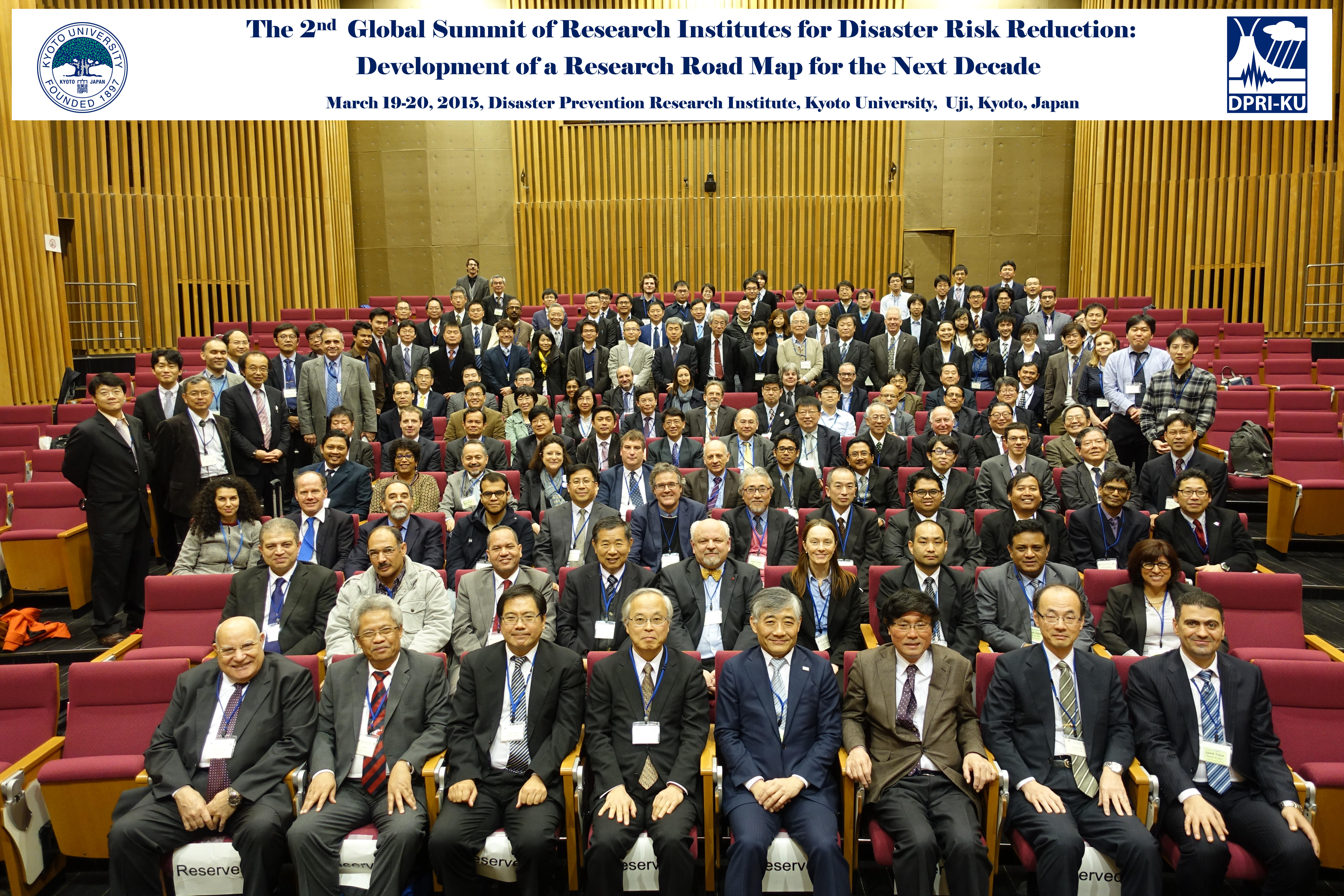
Following the Hyogo Framework for Action (HFA), advances have been made in the application of damage reduction principles, but many challenges remain as seen by the continued increase in disaster losses. Also, the new Sendai Framework for Disaster Risk Reduction 2015-2030 with support from the Scientific and Technical Advisory Group of the United Nations Office for Disaster Risk Reduction (UNISDR), has pointed out the need to better link sustainable development and climate change efforts towards a common goal of harmonious living with nature and our planet. The Framework explicitly calls for coordinated efforts by the scientific community to deepen the understanding of disaster risks, promote evidence-based implementation of disaster risk reduction strategies, and transfer and disseminate scientific knowledge and technologies in support of decision making processes.
Building on these, participants of the "2nd Global Summit of Research Institutes for Disaster Risk Reduction: Development of a Research Road Map for the Next Decade," met to in March 2015 at the Disaster Prevention Research Institute (DPRI), Kyoto University to discuss how the disaster research institutes can contribute to disaster risk reduction in the next 15 years in accordance with the goals of the Sendai Framework.
The outcome of the discussion was the establishment of the "Global Alliance of Disaster Research Institutes (GADRI)." GADRI is a forum for sharing knowledge and promoting collaboration on topics related to disaster risk reduction and resilience to disasters and is a network of networks guided by organizational values for disaster risk reduction that are reflected in the GADRI Charter.






